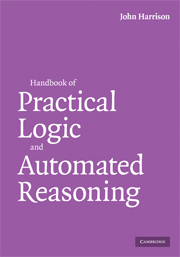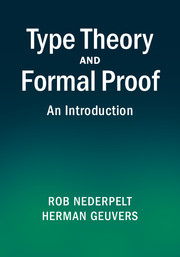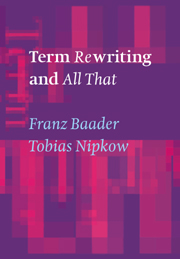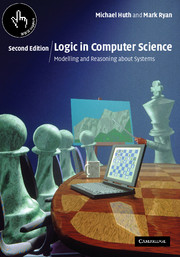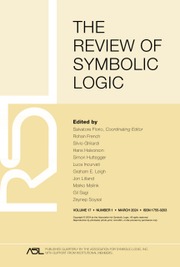Handbook of Practical Logic and Automated Reasoning
The sheer complexity of computer systems has meant that automated reasoning, i.e. the ability of computers to perform logical inference, has become a vital component of program construction and of programming language design. This book meets the demand for a self-contained and broad-based account of the concepts, the machinery and the use of automated reasoning. The mathematical logic foundations are described in conjunction with practical application, all with the minimum of prerequisites. The approach is constructive, concrete and algorithmic: a key feature is that methods are described with reference to actual implementations (for which code is supplied) that readers can use, modify and experiment with. This book is ideally suited for those seeking a one-stop source for the general area of automated reasoning. It can be used as a reference, or as a place to learn the fundamentals, either in conjunction with advanced courses or for self study.
- One stop reference that is broad-based and self-contained
- Constructive approach that enables topics to be discussed algorithmically; implementation of these algorithms provided as code
- Can be used as a reference, or as a place to learn the fundamentals, either in conjunction with advanced courses or for self study
Reviews & endorsements
"Valuable as both a strong introduction for complete beginners and a rich reference source, even for expert logicians."
D.V. Feldman, CHOICE
" [...] if you want to implement ATP (automated theorem proving) code this book is an excellent choice. It has complete implementations of absolutely everything in OCaml (a dialect of ML, a mostly functional programming language) which is an excellent choice for this type of application."
D. Fox, amazon.com
"[...] sure to fill a need for a well-rounded work that can serve both as a reference on a range of topics and as an introductory text, especially for those who wish to study the subject for its possible practical uses. [...] Good features of the book are its overall readability, the good historical perspective conveyed while retaining its serious scholarly gravitas, and the use of OCaml to work with the concepts, presented alongside."
Shrisha Rao, Computing Reviews
"Harrison exhibits both the remarkable flexibility and limitations of OCaml (and other languages) for automated theorem proving. [...] I strongly recommend Harrison's handbook to mathematicians working on provability, computer program developers working to establish self-coherence of some parts of their programs, and students looking to understand propositional and first-order logic."
Arturo Ortiz-Tapia, Computing Reviews
"[...] the book is remarkable in many ways, including the breadth of its scope, the depth of its insights, and the clarity and readability of its prose. [...] while Harrison does focus on implementation and practical issues, he does not skimp on the underlying theory; indeed, the text passes between the two poles with surprising fluidity. The book does not assume background in logic, and appendices review the requisite background in mathematics and programming. As a result, the text is accessible to a broad audience, including sufficiently advanced undergraduates. [...] Harrison does a very good job of providing broader context and pointers to the literature. Each section ends with copious notes and references. As a result, the book can serve as a helpful introduction to the contemporary literature, like having a friendly uncle working in the field. [...] It provides a lucid and synoptic overview of these topics, conveys a solid theoretical background, provides tools for experimentation, and offers notes and pointers that facilitate a smooth transition to the contemporary literature. [...] Anyone working in automated reasoning, or looking to come up to speed on developments in the field, will want to have a copy at hand."
Jeremy Avigad, Theory and Practice of Logic Programming
"Overall this is an excellent book that provides a wide-ranging view on automated reasoning techniques for classical logic. The author achieves a good balance between providing good intuition and rigour in presenting the selected materials. Its breadth will make sure that even an expert in the area will find something useful in the book."
Alwen Tiu, The Bulletin of Symbolic Logic
Product details
April 2009Adobe eBook Reader
9780511501562
0 pages
0kg
10 tables 155 exercises
This ISBN is for an eBook version which is distributed on our behalf by a third party.
Table of Contents
- Preface
- Ideological orientation
- Acknowledgements
- How to read this book
- 1. Introduction
- 2. Propositional logic
- 3. First-order logic
- 4. Equality
- 5. Decidable problems
- 6. Interactive theorem proving
- 7. Limitations
- Appendix 1. Mathematical background
- Appendix 2. OCaml made light of
- Appendix 3. Parsing and printing of formulas
- References
- Index.

